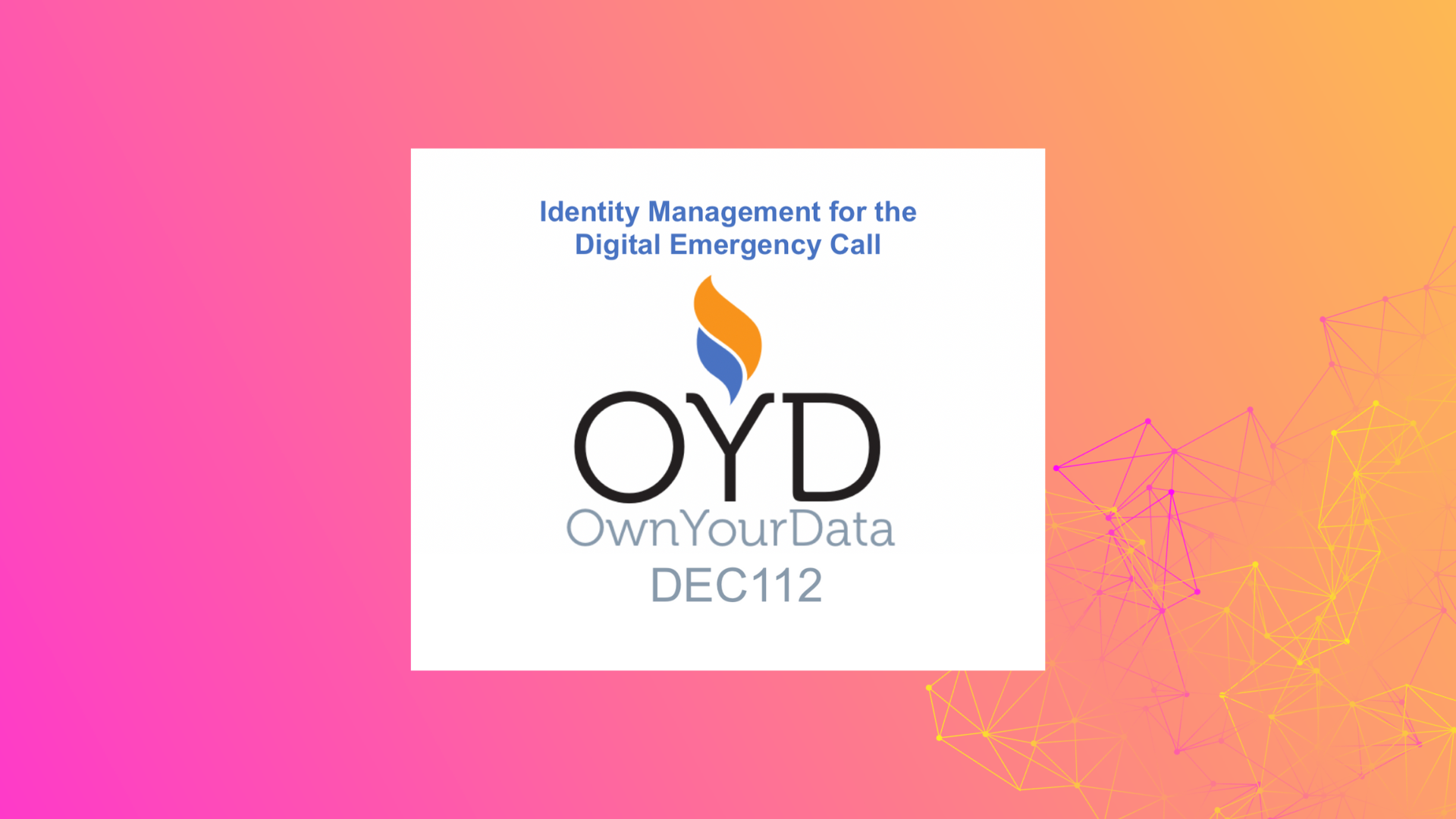IM4DEC aims our solution we want to enhance security and privacy protection when using a decentralised identity. Additionally, interoperability and user control & consent will be improved with the design patterns outlined in our project.
Learn more about the latest advancements of this team in the interview below.
Can you briefly present your team?
Our team is set up from two Austrian non-profit organisations: OwnYourData and DEC112. Since 2015 OwnYourData develops and operates data management solutions. We are active in various domains spanning Data Literacy, Information Security, and Self-Sovereign Identity. DEC112 provides an easy, reliable and secure way for deaf or hard of hearing persons in Austria to text for help in an emergency through a simple and intuitive interface.
How did you come up with this project idea and what benefits will it bring to the end users?
UN convention Article 9 requires countries to take measures for the full and equal participation of persons with disabilities, including access to communication and information services. Despite this, there are still about 1 million deaf and hard of hearing persons in Europe who currently rely on outdated technology (e.g. fax) and help from others to make an emergency call. With our project we aim to address this shortcoming and bring modern technology from identity management and conversational AI to the domain of text-based emergency communication focused on persons with disabilities.
How is TrustChain supporting your growth and what role does it play for the next steps in your development?
TrustChain plays a pivotal role for our associations by providing a structured framework that enables the development and integration of new features effectively. It facilitates regular checks on progress and emphasizes the importance of maintaining comprehensive documentation, which is crucial for continuous improvement and knowledge sharing. Additionally, TrustChain serves as a valuable forum for discussing approaches and strategies with other like-minded projects, fostering a collaborative environment that is essential for our development.
Why did you apply to the TrustChain call and has your vision changed since then?
We applied to the TrustChain OC1 call primarily because it presented a unique opportunity to address open challenges in Identity Management, a field that is pivotal for secure and efficient digital interactions in today’s increasingly interconnected world. The call also offered the exciting prospect of experimenting with new technologies, such as ChatGPT, and preparing for the future of data sharing—an area ripe for innovation and critical for the advancement of digital ecosystems.
Engaging with TrustChain’s diverse and forward-thinking community has broadened our understanding of the potential applications and implications of decentralized identity systems and AI-powered communication tools. The collaborative environment has not only reinforced the importance of developing user-centric solutions but also highlighted the necessity of fostering trust and transparency in digital interactions.
What is the most valuable takeout from the TrustChain project and why was the topic of the Open Call important to you/your team?
The most valuable takeaway from the TrustChain project was the comprehensive understanding and application of privacy and data protection measures, as evidenced by our Privacy Report and Data Protection Impact Assessment. This focus was paramount to our team because it aligned with our commitment to prioritizing user privacy while setting up a new Kubernetes-based infrastructure, which not only enhanced system availability but also standardized maintenance procedures, ensuring our solutions met the highest standards of security and reliability.
Did you establish collaboration with any of the TrustChain teams or plan for any kind of synergies? If yes, what is the biggest potential in such collaborations?
Yes, we established significant collaborations with Sphereon to integrate their powerful EUDI Wallet to support did:oyd, and we’re working closely with DanubeTech on implementing DID Rotation, with plans to incorporate it into the UniResolver. These partnerships enable us to leverage the strengths of different platforms, enhancing the user experience and pioneering advancements in the management and interoperability of decentralized identities.
What are your expectations regarding the TrustChain software ecosystem and its contribution to the NGI priority areas?
Our expectations for the TrustChain software ecosystem center on its potential to significantly enhance interoperability and foster a collaborative environment where innovative ideas can merge. By prioritizing security and resilience, we anticipate that TrustChain will play a crucial role in creating a safer, more connected digital landscape for all European citizens, ensuring that integration efforts lead to robust and user-centric solutions.
What are the next steps for your team?
For DEC112, our immediate focus is on developing and deploying new features into production, enhancing the service’s capabilities and user experience. Concurrently, the OwnYourData team is concentrating on advancing data exchange mechanisms and the implementation of the Digital Product Passport, aligning our efforts with the objectives of the EU Green Deal. These steps also align with our mission to foster a more secure, sustainable, and user-centric digital environment.
What is the message you would give to new and potential applicants to TrustChain Open Calls?
Embrace innovation and explore how you can enhance existing TrustChain components to create impactful solutions.

